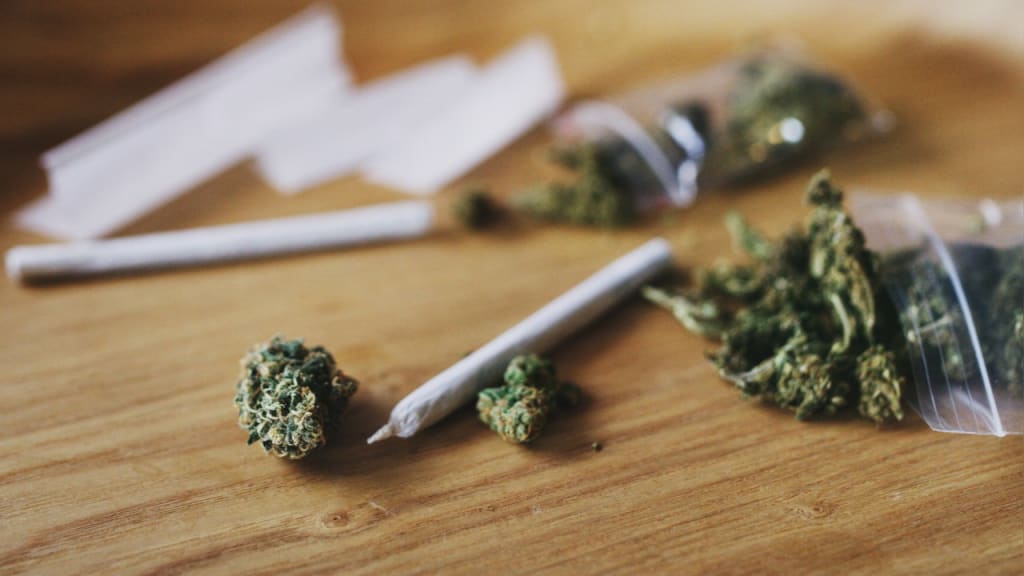With legalization on the horizon, a child psychologist reflects on hazards of teen marijuana use
Sarah Paper is comfortable with uncomfortable situations. As an Allina Health child psychologist, she sees young patients at a range of ages

Sarah Paper is comfortable with uncomfortable situations. As an Allina Health child psychologist, she sees young patients at a range of ages, but her area of specialty is working with teens. While some adults like to avoid interactions with adolescents, Paper said she thrives on her time with them — even the most challenging ones.
“Adolescents are my favorite people,” said Paper, who holds a doctorate in psychology. “I just love them. Their feelings are so big and they’re so honest and so raw. It’s just a really exciting time to get to work with somebody when their whole job is to figure out who they are. I find my time with them to be really rewarding.”
One challenge that many of Paper’s teen patients are facing these days is marijuana use. The Minnesota State Legislature’s recent move to legalize recreational use of the drug for adults over 21 is raising questions for many of her patients’ parents about the availability and impact of cannabis on their teens.
I recently spoke with Paper about how she works with families around the issue of cannabis use and abuse. While she is in favor of decriminalization and expungement, she explained that she is concerned about the drug’s impact on teens’ still-developing brains, especially with heavy, chronic use.
“Just like with anything else,” Paper said, “just because it is legal doesn’t mean it will be harmless.”
The conversation below has been edited for length and clarity.
MinnPost: What are some issues you’ve observed in your adolescent patients who are regularly using cannabis?
Sarah Paper: One thing I’ve noticed for a long time has been that kids who experience anxiety, particularly social anxiety, seem to have the biggest difficulty managing their marijuana use. I was just reading a study from the University of Washington that showed that kids with social anxiety disorder are way more likely to develop a dependence on marijuana, probably because in the moment it does reduce their anxiety but eventually fosters the belief of, “I can’t socialize unless I’m high.” When that happens, their use increases.
MP: Medical cannabis has been approved for the treatment of anxiety in many states. Many Minnesota psychiatrists think that’s a risky idea. As a psychologist, Where do you stand on the issue?
SP: Each person has a different response to marijuana. At lower doses, the THC in cannabis can reduce anxiety. At higher doses, it can make anxiety worse. Because of its impact on the developing brain, repeated, heavy use of cannabis can make an adolescent have slower thinking or weaken their mental processing and reduce their ability to have a conversation. A teen who is smoking weed may think they are doing well socially, that cannabis is helping their anxiety, but the more they use they may actually be reducing their ability to thrive in social situations.
Some people say that medical marijuana helps their anxiety, but that is in small doses. There is a dependency that can happen with cannabis, a tolerance you can build that can make you need more and more. We have more effective, non-medicinal treatments for social anxiety that have better impact and less side effects than cannabis, including cognitive behavioral therapy.
MP: How can parents or other adults tell if the teens in their life are regularly using marijuana?
SP: One way to track if your teen is heavily using drugs is to look at their bank account. If you can see consistent withdrawals from an ATM, or Venmo payments to one person, that is a sign. I often ask teens in my practice, “How much are you spending on weed?” It’s good to be specific, or otherwise you are going to get a vague answer, like “Not that much.”
It is important to be approachable and be open and ask questions and be curious instead of accusing. It is better to say, “I’m worried about you,” than to say, “I know you’re doing something.” To say something nonjudgmental, like, “I’m worried about the changes I’m seeing in you,” gives your teen an opportunity to respond in a different way.
MP: What do you say to parents who discover that their teen is regularly using marijuana?
SP: The most important message for parents is to think about the idea that your child may be self-medicating with cannabis. Research has found that when teens believe they have found a relief to their symptoms, they are way more likely to develop chronic and heavy use of a drug. When they develop a dependence, they can continue to use more and in isolation. I’ve seen that with kids I’ve worked with: If they believe marijuana is helping them, they are going to keep using it, and that use will eventually create more of a problem.
Heavy marijuana use can do damage to a teen’s life. Their grades go down. They become less motivated to do things. Sure, it can reduce anxiety, but some anxiety in life is healthy. I say to my young patients, “You should be worried about your grades. You should be worried about whether to get to school on time or go to your classes. You should worry about the consequences when your parents discover you are using or your grades are declining or if you lose your job.” You don’t want to take all the anxiety away from your life.
MP: In your experience, how do teens respond when a parent or another concerned adult tries to talk to them about their marijuana use?
SP: The problem is that in adolescence there is a feeling of immortality. A teen’s ability to think that their use could have a bad effect on them is not likely. They’ll say things like, “My friends are fine,” or “Snoop’s fine.” They are going to come back at you with this.
I think that those are important things to keep in mind. If you can say, “Your test scores are going down. You are not doing well in school. Clearly something is happening in your brain,” that can be better evidence for them. They are not going to believe that their brain is going to be damaged. This argument is the same with excessive alcohol use. There are even vitamins that can become toxic if you take too much.
MP: Some people argue that cannabis is actually safer than more common pharmaceutical approaches to treating mental illness. What do you think about that?
SP: I can understand and appreciate that argument. I do think it is good if you can treat a person without any medication. Exercise and therapy and engaging in other activities that are healthy and don’t have side effects are good ways of treating some mental illnesses. I think if you are putting a substance in your body to treat yourself it should be monitored, so that’s a positive of legalization. The negative impact is that cannabis does create a dependence in some people.
MP: Is all cannabis use dangerous for adolescents?
SP: I work with teens who use cannabis more socially and recreationally. They don’t have the same devastating consequences as kids who chronically take heavy doses.
MP: Can you tell me more about some of the consequences you’ve seen with heavy cannabis use?
SP: It’s a complete apathy and lack of interest in doing anything. For some people, using high doses of cannabis allows them to lay in their bed all day and do nothing, be with nobody or sit around and play video games or watch YouTube. That’s not healthy. It eventually becomes a bigger problem.
A secondary consequence of chronic cannabis use is the impact this behavior has on teens’ relationships with other people in their lives. Young people in this situation often have conflict with their parents. Say if a teen is in their room doing nothing all day, their parents might just yell at them and they might get even more depressed.
MP: Are there some teens that you think should avoid marijuana altogether?
SP: Young people who have some genetic vulnerability to more severe mental illnesses like bipolar or schizophrenia have to be extra cautious around their marijuana use. It is hard to know the impact of casual use, but people who are at risk of developing some persistent and severe mental illness can be more likely to turn to cannabis to self-medicate. Research has shown that the regular use of high-potency cannabis can actually trigger the development of some of these mental illnesses in a young person.
There is research that shows that chronic, heavy use of highly potent marijuana causes damage to the brain. Some of that damage may be permanent, but when a person starts to abstain, after a time of sobriety, they begin to gain back many of their abilities. The younger a person starts using cannabis, the more likely they are to become dependent and the more likely they are to have higher use and have more permanent damage to their brain.
MP: What kind of conversations do you have with your young patients about their marijuana use?
SP: I try to have open conversations and try not to be judgmental and just listen and help them see for themselves that there would be benefits of reducing their use. There is often definitely a response like, “You don’t understand. It’s not like it was when you were young.” I try to talk to them about the changes that are actually happening in their lives that would be better if they were using less or not using marijuana at all.
MP: What approach to you suggest to parents?
SP: What works the best is taking an open, conversational approach and having some warmth and understanding and indicating that you want them to make the healthiest choice for them. When parents apply more of a punitive approach, like, “You are grounded.” Or “I found this vape. I’m going to take the car keys away,” they create a “them-against-you” dynamic and there is going to be more distrust on both sides. Your adolescent is going to work harder to not get caught and lie and hate their life more. If they are self-medicating, if they are in a higher-risk group, and then they think their parents are mad at them, they are going to feel worse about themselves and they are going to smoke more weed.
MP: Are there any other messages that you try to pass on to your patients and their parents about teen cannabis use?
SP: The impaired-driving part is a really important thing for adults and teens to keep in mind. In states where recreational marijuana has been legalized there have been increases in fatal traffic incidents. Particularly when marijuana is mixed with alcohol, but also when someone is under the influence of marijuana alone, their processing speed is slowed down, their attention is slowed down, and that can be deadly.
Read more - Firenewsfeed





Comments
There are no comments for this story
Be the first to respond and start the conversation.